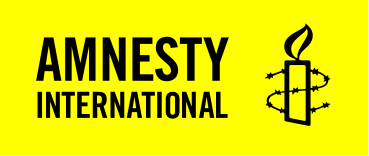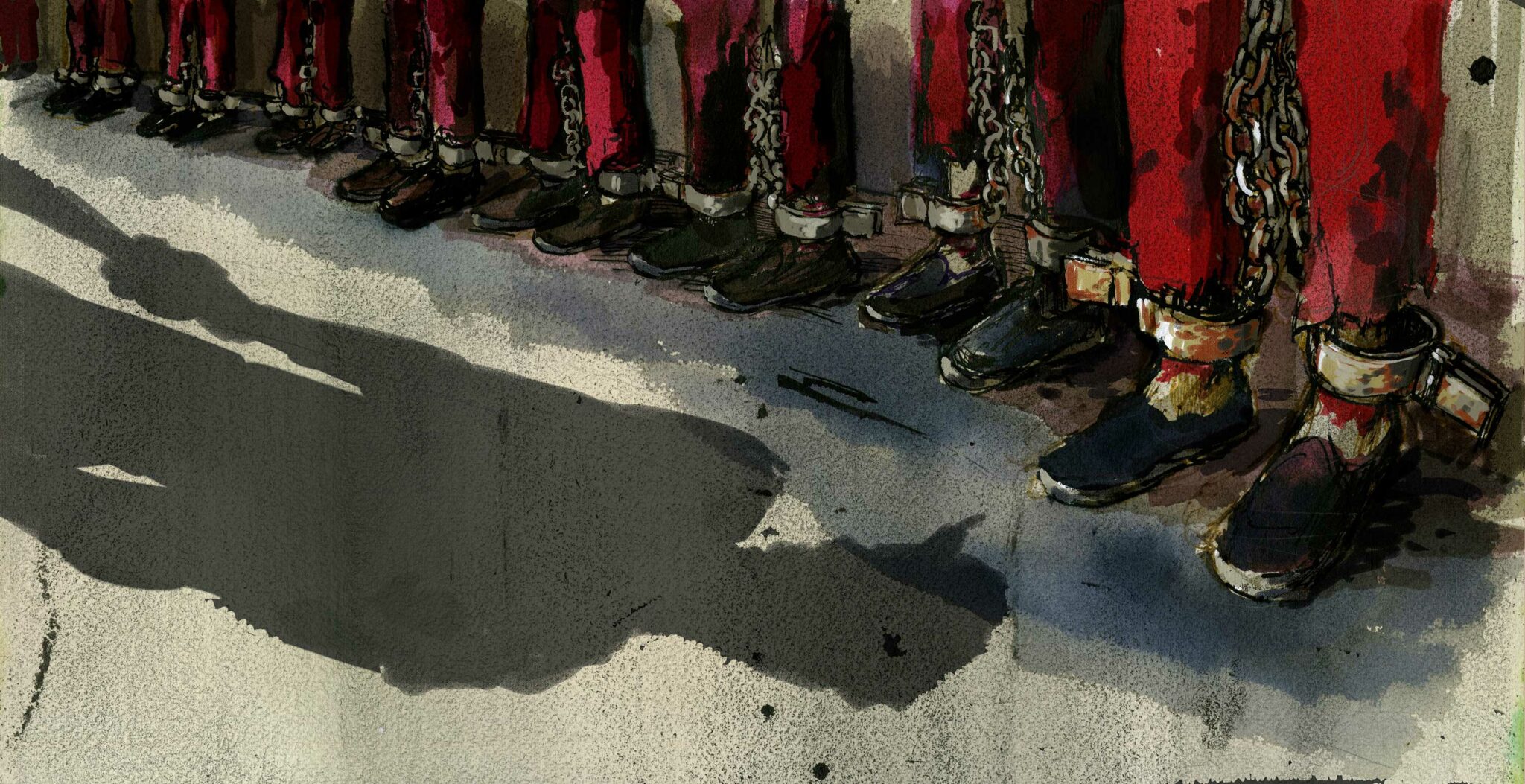Former detainees’ experiences of the release process before being sent home
Detainees were not made explicitly aware of the government’s criteria for release; however, they generally understood that their behaviour was constantly being evaluated. Many were informed that their release was predicated on achieving certain targets, such as learning a sufficient number of Chinese characters. [[[Amnesty International interviews.]]] Many also understood that breaking any camp rules would likely prolong their detention.
Despite their awareness of being evaluated, very few former detainees credited their release to anything they did or did not do in the camps. Most attributed their release to factors largely or entirely outside their control, such as their Kazakh ethnicity and the fact that the government decided to release ethnic Kazakhs from the camps. [[[Amnesty International interviews.]]] Some believe they were released because of appeals for their release made by family members living abroad. [[[Amnesty International interviews.]]] Others have no idea why they were released. [[[Amnesty International interviews.]]] “They released 12 people the day I was released… They said, ‘Your time is up and you can go home now.’ They didn’t say why. They just released Kazakhs, not Hui or Uyghurs,” Asylbek told Amnesty International. [[[Amnesty International interviews.]]]
Some former detainees also believed their release was connected to the reason they were initially detained; those detained for certain “crimes” – especially religion-related offences – were believed to be much less likely to be released. [[[Amnesty International interviews.]]] This would be consistent with several other aspects of the mass incarceration campaign and the internment camp system. Because those sent to camps for religious reasons were generally placed in the “strict” or “very strict” management categories, it stands to reason that at the very least, it would take longer for them to progress from either of those categories into the “normal” management category, which, according to the Telegram, is a prerequisite for release.
The interviews and other procedural steps former detainees have described undergoing before being released are broadly consistent with the process outlined in the Telegram. Many of the former detainees were questioned by camp and other government officials before release, often by several groups of officials from different government bodies. [[[Amnesty International interviews.]]] According to Nurgul, who said she was detained for having WhatsApp on her phone, the release procedure involved officials from several levels of government. “It’s like a parole hearing. Civil servants came to camp. They checked my documents, asked whether I improved, whether my family was complying. They asked your friends and your neighbours if you were reliable,” she said. [[[Amnesty International interviews.]]]
The questions asked in these pre-release interviews followed a similar script. Detainees were asked about their religious practices, their contacts abroad, and other topics they had been questioned about repeatedly throughout their internment. Nearly all detainees were required to “confess” to their “crimes”, to acknowledge that their past behaviour was wrong, to express how much they appreciated the education they had received, to explain how their thoughts had been “transformed”, to swear they would not act that way again, and, often, to disavow Islam. Detainees were also required to explain what they were planning to do after they were released. [[[Amnesty International interviews.]]]
Former detainees believed that to be released they needed to answer all the questions in the way the government officials wanted, regardless of whether it was the truth. Aitugan told Amnesty that in the weeks before his release, he was interviewed by four different groups of government officials – “school” level (that is, camp level), county level, prefecture level, and autonomous region level – all of whom asked him similar questions and, he believes, required certain answers:
All the [interviews] were the same. [They asked,] ‘What did you learn? Have your thoughts transformed? Do you love China? What are you going to do when you are released? Do you appreciate your re-education?’ We had to answer all the questions positively or be sent to jail. We know this… Each [of the four interviews] was one to two weeks apart, and lasted for 30 to 60 minutes… When they [detained] us they made up one reason [for our detention] even though we didn’t do it… [Before you were released] you had to write something. [You had to start what you write] with that reason. Then you copied a form saying you wouldn’t pray, wouldn’t go to a mosque, and would follow all Chinese laws. [[[Amnesty International interviews.]]]
Towards the end of the interview process, detainees were made to write and sign several letters and to sign several official documents, including a “confession” letter, a “gratitude” letter, and at least one document stating they would not disclose anything about their internment in the camp to anyone, including members of their family, and especially not to foreign nationals. [[[Amnesty International interviewSee also: Alison Killing and Megha Rajagopalan, BuzzFeed News, What They Saw: Ex-Prisoners Detail The Horrors of China’s Detention Camps, 27 August 2020 →; Emily Rauhala and Anna Fifield, Washington Post, “She survived a Chinese internment camps and made it to Virginia. Will the U.S. let her stay?”, 17 November 2019 →]]] Former detainees said they had to sign numerous documents before being released. “I had to sign 19 documents to be released,” Daulet said. [[[Amnesty International interviews.]]]
Nurgul, who said he was detained for travelling to Kazakhstan, told Amnesty International he had to write and sign three letters before being released.
Before I was released, I had to write a letter of gratitude to the Party, thanking them for feeding and educating us. And I had to write a confession letter, saying that I committed a mistake by going to Kazakhstan… You needed three letters to sign out. [The third] said [I was] not allowed to say anything about our experience in the camp and that if I did then I agreed to be judged and sent back to the camp. [[[Amnesty International interviews.]]]
All detainees were told unequivocally that if they disclosed information about the camps they would be interned again or sent to prison. Former detainees were also told that their family members would also be sent to camps. Nurislam, who was released along with a large group of Kazakh detainees, told Amnesty International that camp officials told the group before their release that if they disclosed anything about the camps they would be sent back to the camps along with their wives. [[[Amnesty International interviews.]]] Aidar told Amnesty he was required to write a letter of gratitude to the Party before being released and to swear not to disclose anything under penalty of his family being sent to a camp:
[During the final time I was interrogated in the camp], a few days before I was released, I had to write down everything that happened to me in the foreign country [I visited]. And to write about communism and democracy. I knew that we had to praise communism and despise democracy, so that is what I did. And I had to write that if I ever spoke about what happened in the camp then my parents would be sentenced. Then I had to sign and put my fingerprint on the paper. [[[Amnesty International interviews.]]]
Some former detainees were told to deny they had ever been to a camp. [[[Amnesty International interviews.]]] A few said they were coached on what to say to friends and relatives after they were released. [[[Amnesty International interviews.]]] Tajigul told Amnesty International that before her release she was taken to a police station, where they put make-up on her and fed her. She was interrogated repeatedly over the course of a week, during which time they also told her what to do for the video they wanted her to make: “[Before I could be released] I had to make a video saying good things about the CCP and what they had done for me, how strong the country was, that [an overseas Uyghur organization] did terrorist activities.” [[[Amnesty International interviews.]]]
Dariga told Amnesty that to be allowed to go back to Kazakhstan she had to make a very detailed video stating that her time in the camp had been voluntary, that she was treated well in the camp, and that she had learned many valuable things during her time there, including why religion was bad. “I didn’t want to say these things,” she said. “I had to say them to see my children.” [[[Amnesty International interviews.]]]
Family members of detainees were also threatened with detention if they spoke about the fact that their family members had been to a camp. According to Batima, who worked in a village administration office, family members of about-to-be-released detainees received a call from government officials warning them not to disclose that their relative had been to a camp and threatening them with jail time if journalists ever found out anything about the relative’s internment. [[[Amnesty International interviews.]]]
Once detainees fulfilled the necessary conditions, they were permitted to return to their homes; however, they had to do so under strict conditions limiting their movements and associations. [[[Amnesty International interviews.]]]



